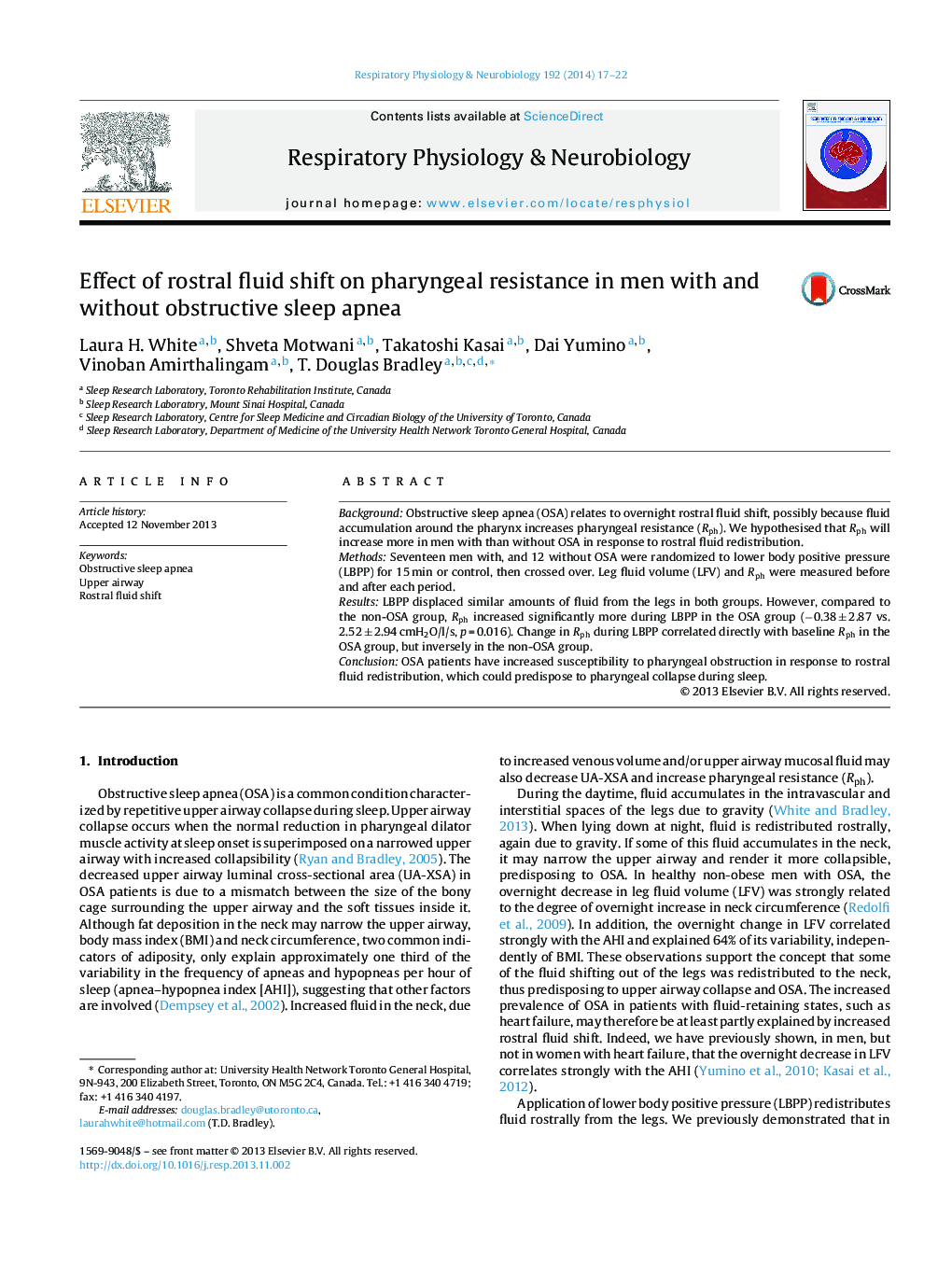| Article ID | Journal | Published Year | Pages | File Type |
|---|---|---|---|---|
| 2847036 | Respiratory Physiology & Neurobiology | 2014 | 6 Pages |
•Overnight rostral fluid shift from the legs to the neck is associated with obstructive sleep apnea.•We assessed the effect of rostral fluid shift induced by lower body positive pressure on pharyngeal resistance.•In men without obstructive sleep apnea, pharyngeal resistance did not change.•In men with obstructive sleep apnea, pharyngeal resistance increased.•Susceptibility to pharyngeal obstruction due to rostral fluid shift may predispose to pharyngeal collapse during sleep.
BackgroundObstructive sleep apnea (OSA) relates to overnight rostral fluid shift, possibly because fluid accumulation around the pharynx increases pharyngeal resistance (Rph). We hypothesised that Rph will increase more in men with than without OSA in response to rostral fluid redistribution.MethodsSeventeen men with, and 12 without OSA were randomized to lower body positive pressure (LBPP) for 15 min or control, then crossed over. Leg fluid volume (LFV) and Rph were measured before and after each period.ResultsLBPP displaced similar amounts of fluid from the legs in both groups. However, compared to the non-OSA group, Rph increased significantly more during LBPP in the OSA group (−0.38 ± 2.87 vs. 2.52 ± 2.94 cmH2O/l/s, p = 0.016). Change in Rph during LBPP correlated directly with baseline Rph in the OSA group, but inversely in the non-OSA group.ConclusionOSA patients have increased susceptibility to pharyngeal obstruction in response to rostral fluid redistribution, which could predispose to pharyngeal collapse during sleep.
